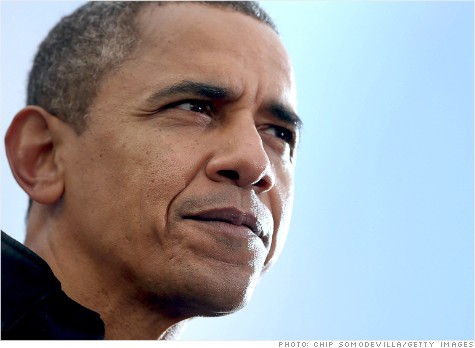
States have until Friday to say whether they'll set up health exchanges under President Obama's health reform law.
NEW YORK (CNNMoney) -- States have until Friday to decide whether they will set up health insurance exchanges, a key provision of President Obama's controversial health reform law.
The health exchanges, which are scheduled to open their doors in 2014, will create online marketplaces where individuals and small businesses can find more affordable insurance plans. Uninsured Americans whose incomes range from 100% to 400% of the federal poverty level will be eligible for federal subsidies.
Between 23 million and 25 million people will receive coverage through the exchanges from 2016 on, according to estimates from the Congressional Budget Office.
Since health reform remains a political flashpoint, many states were waiting to see who won the presidential election before deciding whether to set up an exchange.
Residents in states that choose not to create exchanges will be able to participate in a federal exchange. A few states may opt for state-federal partnerships, in which states operate certain customer assistance and plan management functions.
Most Americans must have health insurance starting in 2014 or face fines.
Some 15 states and the District of Columbia have established state exchanges so far, with four others planning to set up the partnerships, according to the Kaiser Family Foundation. Traditionally blue states, including New York, Maryland and California, are among the ones that have created exchanges.
Another 11 states -- including Texas, Florida and South Carolina, where the governors have come out strongly against the president's initiative -- have decided not to create exchanges. Another 14 states are studying their options and six have done virtually nothing to prepare.
Arizona is one of the states still weighing the choices. The Grand Canyon State received a $30 million grant to study the issue and Governor Jan Brewer, a Republican, will make her decision this week, said Matthew Benson, her spokesman.
Related: What Obama's win means for the fiscal cliff
Recognizing that creating exchanges can be a heavy organizational lift, the federal Department of Health and Human Services announced last week that it would give states additional time to submit details of their plans for an exchange. While states still have to tell regulators whether they plan to implement an exchange or not, they don't have to provide specifics until December 14.
There are pros and cons to creating exchanges, said Alan Weil, executive director of the National Academy for State Health Policy. Creating them involves financial, operational and political risk.
The exchanges have to be self-sustaining after the first year. If they are not, states may be on the hook or may have to charge fees to the insurers, Weil said. And they can also be complicated to set up since states have to establish rules regarding offerings and pricing, as well as meet various marketing requirements to make sure the sick and the poor are not shut out. They must also establish call centers and websites to assist people in picking plans.
Also, some state officials may face a political backlash since Obama's health care reform is deeply unpopular in many locations.
But establishing an exchange allows states more control over which plans are allowed to participate, how the insurance options are structured and how quality of care is measured. Also, it makes it easier to coordinate with the state's Medicaid system, which will be expanded in many states to cover all adults up to 133% of the poverty line.
But even the states that are embracing the exchanges are scurrying to get the system ready by the 2013 open enrollment deadlines, which begin in October.
"There are some states that may simply run out of time to have everything ready to go," said Jen Tolbert, director of state health reform for the Kaiser Family Foundation.
![]()
First Published: November 15, 2012: 5:42 AM ET
stephen colbert south carolina seal seal and heidi klum drew peterson untouchable herman cain south carolina palmetto rob lowe
No comments:
Post a Comment